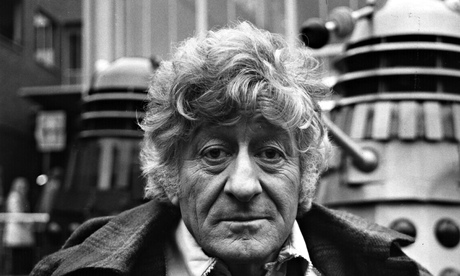
Four days before Christmas, the phone call went like this:
Editor: Would you like to write a new Doctor Who story?
Me: You had me at "Would you like to write".
Editor: It's a crash schedule.
Me: Scare me.
Editor: You have four days to submit a synopsis.
Me: Ulp.
Editor: And a week to write it.
Me: *strange strangled duck like noise*
Editor: *hangs up*
About five minutes after that, the reality of what I had agreed to dawned on me. For a good few reasons, I was, well, let's say apprehensive.
Firstly, I'm in the fortunate position (an increasingly rare one these days) of not having to write a synopsis for the books I write. It's SUCH a dumb idea to make creative people try to predict exactly what they are going to write. It's a result of publishing trying to become more like "proper" industries where it is actually possible to do some R&D (research and development) and make some prototypes and run some focus groups before you launch your new product.
Books don't work that way, because it's not the best way to get the most original or the best writing. Books will never work well that way, and just because the publishing industry has started to decide that they should, the way writers create books best isn't going to change. But okay I thought, for once, for a relatively short book (12,000 words) I think I could bash out a synopsis.
So I did. The next part of the process was another new thing for me; the synopsis had to be approved, not only by the publisher, but by the BBC too. They own Doctor Who, and therefore they own "The Doctor" himself. What this means is that unlike any characters I had written about before, I would be working to a rigid and predefined set of "guidelines" (ie: rules), in order that my story should conform to every other depiction of The Doctor.
That seemed fair enough; it just wouldn't do to start having him start behave in totally new ways just because I felt like it. What was more surprising were some of the other injunctions to be applied to my writing – "no blood" being one of the more curious ones, given how terrifying Doctor Who can be sometimes in many other ways.
My synopsis got approved with only a couple of minor suggestions – I'd had an idea knocking around for a while to do with some Viking mythology (this is something writers often do when asked at short notice for a short story – pull something out of the bottom drawer of their imagination that's been waiting for a chance to come out), so I elaborated on that idea, which was to do with Odin, Odin's magical spear Gungnir, and the legend of The Spear of Destiny, known to Hitler as the spear that pierced Christ's side as he hung on the cross. Then it was just a question of working the Doctor into that. I was writing about the Third Doctor, as played by Jon Pertwee, which was great because, with Tom Baker, he's one of my two favourites. So that part wasn't too bad.
Then just came the part where I had another week to write the thing. Now to be honest, that bit wasn't too bad either. When I write, I write very fast. As long as I know more or less what I'm doing, and how I'm going to do it, I can write a lot in a short space of time.
But then, as I sat down on that first morning over Christmas to write the story, came the scariest thought of all that had passed; I was about to write a Doctor Who story. Doctor Who. As in Doctor Who. The longest running sci-fi series ever. The beloved iconic character of not just three generations of British children and their parents, but nowadays a worldwide audience too. And what an audience; an audience who not only worship their hero, but know him inside and out, episode after episode, up and down and top to bottom and back again. That was the moment when I doubted my decision to write a DW story.
But it was too late to back out. It was the Christmas holidays, and I had just a few days to email my story in. So there was nothing to do but remember the most important things when writing; to have fun with it. To be playful, creatively. To forget everyone who would read it, from the editor, to the BBC to the final reader, the Doctor Who fan him or herself, and just enjoy the process of living, for a couple of days, with The Doctor, in all his weird glory.
• Marcus Sedgwick did it in the end, as is proved in this extract of Doctor Who: The Spear of Destiny. Marcus's latest book She Is Not Invisible has been longlisted for the Guardian children's fiction prize 2014.
Marcus Sedgwick will be discussing reimagining famous characters with Malorie Blackman, Charlie Higson, Andrew Lane and Patrick Ness in an event chaired by Steve Cole called Regenerating the Doctor: reimagining famous characters from 14.30-15.15pm at the first ever Young Adult Literature Convention which is being held this weekend (12-13 July) at London Film and Comic Con, Earl's Court, London.
Doctor Who is back on our screens on 23 August. Watch this teaser.

